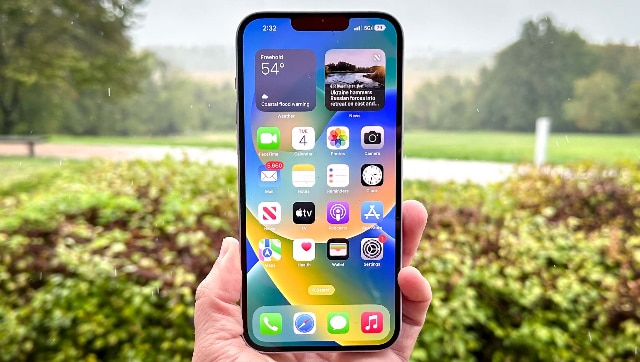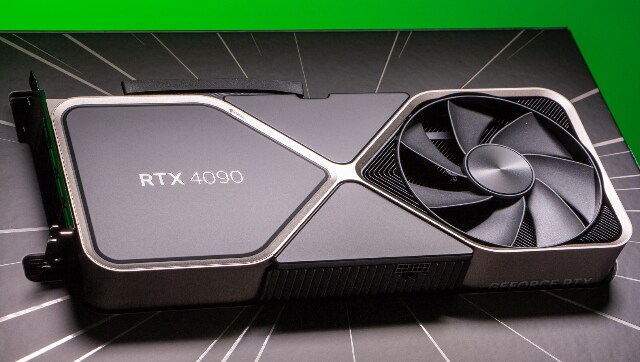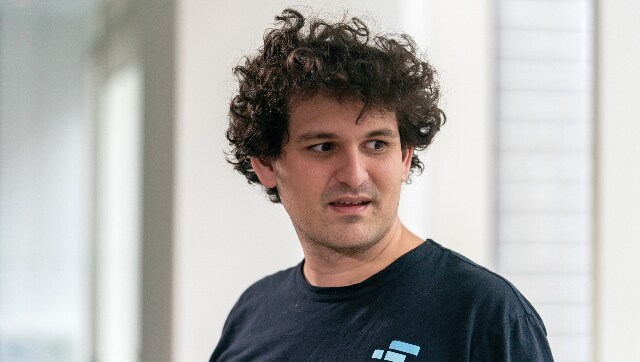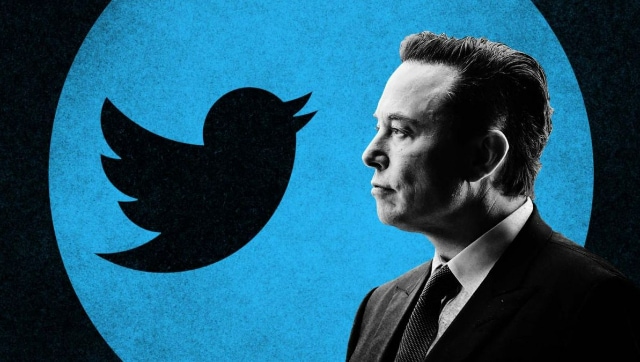FP StaffDec 21, 2022 10:55:36 IST
The year 2022 was an amazing year for tech – from some of the best innovations in smartphones to the giant leaps that engineers and developers made in Artificial Intelligence and science, the year was packed with one technological leap after the other, most of which has the potential to our lives for years to come. However, this was also the year where we saw a few of the most hyped-up developments of tech, fall flat on their faces.

It’s difficult to determine the worst technology of a specific year, as opinions on technology can vary widely. Some people may consider a particular technology to be the worst, while others may see it as a valuable innovation. Additionally, what is considered the worst technology at one point in time may improve or become more popular later on.
With that said, there were some pieces of tech and technological developments that impressed no one. We take a look at the biggest duds from the tech sector this year.
iPhone 14 Plus

On paper, the iPhone 14 Plus was supposed to be just a slightly larger iPhone 14. However, Apple dropped the ball with this one. The iPhone 14 Plus could have been successful had Apple priced it more carefully and given it enough features that would actually attract customers.
Instead, Apple just wanted to fill in a slot in their range of offerings. The iPhone 14 Plus failed to provide any additional value that would entice customers. So bad was the demand for the iPhone 14 Plus that Apple had to ask their manufacturing partners to stop making them, right in the middle of a major production cycle.
NVIDIA RTX 40 Series GPU

Had this been a ranked list the NVIDIA RTX 4090 would have been the biggest disaster of the year. At a time when manufacturers are trying to shrink their products and make computers more compact, it makes no sense for NVIDIA to launch a GPU that was larger and heavier than a brick.
Everything about the launch of the RTX 4090 was a disaster – starting from the price of the cards, to how the categorised the cards initially, to NVIDIA throwing in power connector that not only melts when being used but also destroys itself when being plugged in and pulled out. After a number of great years thanks to the crypto boom NVIDIA made record profits off of cards that were selling for twice or thrice the recommended price, NVIDIA was caught off-guard with the launch of the 40 series.
Google Stadia

People who think Google hardly ever gets it wrong should see the long list of projects that the tech company had to abandon because of the disaster they were. The latest entity to join this list is Google Stadia. Google’s Stadia was set to revolutionize gaming by giving players access to games anytime, anywhere, with no downloads or installs necessary.
Despite its lofty ambitions, the service failed to live up to expectations and ultimately flopped when Google announced it would be shutting the service down. The streaming service often experienced significant lags, crashes, and disconnects, making it virtually unplayable for many users. Plus, the Stadia had a very limited collection of games, which mostly included titles from indie developers.
Meta’s Metaverse or Horizon Worlds platform

Mark Zuckerberg and the Metaverse team at Meta have been trying to push their virtual reality world onto users and their own employees for a long time. Meta anyway had a disastrous year, but nothing, not even the termination of thousands of people from the workforce compares to the disaster that Meta’s Horizon Worlds was.
As of October 2022, Horizon Worlds reportedly had 200,000 monthly users, a tiny fraction of the biggest “metaverse” platform. By comparison, the child-friendly “Roblox” boasts over 200 million monthly users. Moreover, the project is bleeding money, money that the company is simply not able to recoup from its dwindling ad services.
The FTX Scam

Crypto enthusiasts were anyway having a bad year. The FTX crash and the subsequent scam that was uncovered must have felt like a knife to the heart. Cryptocurrencies, all of them, were once positioned as the asset that cannot be cheated, meaning that there was no way anyone could steal or work a scam on these assets. While the crash that FTX went through was somewhat understandable what really shook people up was the manner in which it went bankrupt.
Moreover, the fact that Sam Bankman-Fried, who was once the poster child for a seemingly common guy making it big thanks to the prowess of crypto, actually cheated customers off their deposits to fund his bets at his hedge fund, Alameda Research, has done irreparable damage to the trust people had on cryptocurrencies. The collapse of FTX has brought more scepticism and scrutiny on cryptocurrencies, especially during one of its lowest phases, when the industry has been at its most volatility and turmoil.
Amazon Alexa

Despite being one of the most popular voice assistants on the market, Alexa has had a troubling 2022. Amazon’s voice assistant has reportedly been reduced to only being used for trivial commands like playing music or asking about the weather. And several media reports, primarily based on a Business Insider report, claim that Alexa is on track to lose billions for Amazon. Apparently, Amazon will lose $10 billion because of Alexa, just this year.
The trouble is that most Alexa users simply don’t use the device for much else other than listening to music or asking it to do simple tasks, like becoming a hands-free timer or reading out the weather forecast. Amazon only takes a small percentage of the royalties for music streamed through its service, and basic commands like reading the weather don’t make the company any money at all. Alexa was reportedly Jeff Bezos’ pet project, but as its fortunes have waned, the founder’s enthusiasm for the assistant has reportedly tailed off. A wave of layoffs was announced in November for developers on the Alexa project, and there are rumours of more cuts to come in the near future.
The Twitter-Musk Saga

In October 2022, tech mogul Elon Musk took control of Twitter. But instead of ushering in a new era of prosperity and efficiency, his reign has been plagued with missteps and controversies. Irrespective of what one thinks of Musk, or the platform, one cannot deny that Twitter has been in the news cycle for over two months now, for all the wrong reasons.
In a bizarre turn of events, Musk laid off half of Twitter’s staff, only to realize he needed them to keep operations running. To further complicate matters, he introduced a new, hardcore version of Twitter 2.0 that required staffers to pledge their loyalty to him.
Furthermore, content moderation has become a tricky thing and no one really knows when the rules will change again. The recent suspension of high-profile journalists’ accounts (later reinstated) shows that Twitter in the Musk era has become predictable and tied to the whims and fancies of Musk. The saga of Twitter’s takeover has proven to be an unmitigated disaster and a cautionary tale for anyone considering a similar venture.
Post a Comment